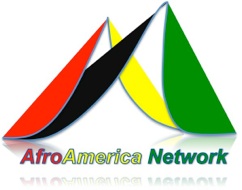The November 28, 2011 controversial elections in the Democratic Republic of the Congo (DRC) were expected to draw international attention. When the international observers and community pointed out severe irregularities and frauds that could invalidate the results, the attention was heightened (see), especially when the elections results were rejected or criticized by Carter Center, Cardinal Laurent Monsengo, Archbishop of Kinshasa, and the United States Government.
However, as AfroAmerica Network observed, the International Community rejected elections but did not side with the veteran opposition politician Etienne Tshisekedi, the leader of Union for Democracy and Social Progress who appointed himself President of the DRC during a ceremony in his backyard. Hence, Joseph Kabila is viewed as the de facto President of the DRC.
To affirm his authority, the Joseph Kabila’s government cut off text message service, limited international communications and and directed the tear gassing of Etienne Tshisekedi’UDPS supporters. Joseph Kabila’s troops are also accused of killing a score of Etienne Tshisekedi’s supporters although there is conflicting reports on the incidents.
Now, the matter has been brought to the United Nations. In a letter to the UN Secretary General and the Security Council, the UDPS leadership, represented by Tshisekedi’s spokesman Albert Moleka, accuses the UN Mission in Congo (MONUSCO) of siding with Joseph Kabila.
Albert Moleka said that
[UDPS] found out that all these election figures were all made up with the complicity of the MONUSCO because it was part of the commission that validated the results. It’s a serious matter because MONUSCO was supposed to guarantee the security for the Congolese people and also to help us through the electoral process.
While “regretting” the MONUSCO’s inaction, UDPS asks the UN Secretary General and Security Council to order MONUSCO to bolster the security of UDPS leaders, especially Etienne Tshisekedi.
As a response the UN Secretary General spokesperson told the media in New York that the security of Etienne Tshisekedi falls under the responsibility of Joseph Kabila’s government. According to the UN spokesperson, MONUSCO and Congolese authorities are examining ways to provide appropriate security for Etienne Thsisekedi and his family and associates.
Meanwhile, the two Congolese leaders, Joseph Kabila on one side and Etienne Thsisekedi on the other claim to be the legitimate president. However, the international opinion appears to have recently shifted towards accepting the former as the de facto President to deal with.
An observation mission from the United States has arrived in Kinshasa to look into the complaints about the elections and try to mediate among the two leaders. According to sources following the mission closely, it is expected that despite their findings and recommendations, Joseph Kabila will remain the recognized President, whereas Etienne Tshisekedi will be “the man who may or may not have been cheated of victory.”
©2012 AfroAmerica Network. All Rights Reserved.




Comments on this entry are closed.